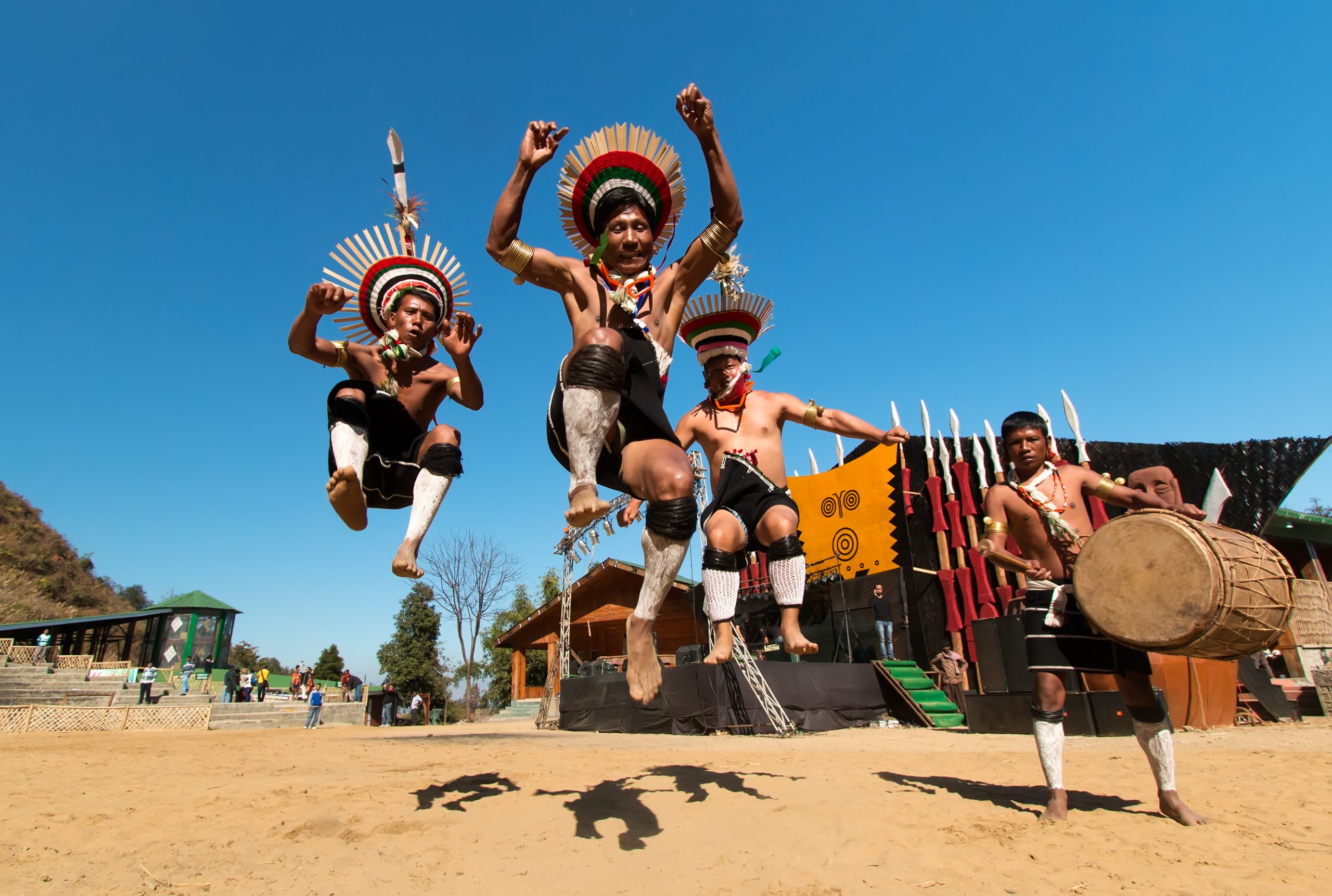Nagaland is aptly called the “Land of Festivals” since its people enjoy celebrating life in all its different aspects. Each month is marked by a festival organised by its various tribes.
Nagaland consists of different groups of people who are unique in their customs and traditions that they celebrate. Songs and Dances form the soul of these festivals. Celebration of these festivals is an effective means of preserving and passing down their oral history.

The Angami tribals celebrate Sekrenyi in the month of February. It normally falls on the 25th day of the Angami month of Kezei. The ten-day festival is also called Phousanyi by the Angamis.
Lasting six days, the Aoling Mongu festival provides excellent insight into the rich cultural heritage of the Konyak tribe. With the completion of the sowing season by end of March, the festival marks the end of winter and, with the onset of spring, heralds in the New Year.
The Aos observe Moatsu after the hard labour of sowing is done. Stretching over a period of six days, the festival is one of enthusiastic merry-making.
A major Naga festival is Moastu, celebrated mainly in the villages after the sowing season. Dressed in colourful clothes and headgear decorated with feathers and wild boar tusks, the people in villages dance to the traditional music.
Held in the month of July, the Tuluni is the most important festival of the Semas. Nobody is allowed inside the village on the first day of this five-day festival. The fourth day is one of prayers and offerings to Litsaba, the deity of fruitfulness who gives life and protection to the crops.
The strong, hardy and handsome Chang Nagas celebrate Naknyulem during the first week of July for a period of six days. No marriage ceremonies are performed during the festival. The Chang decorate their houses with a special kind of tree called the Ngunam.
The annual Hornbill Festival, called the “Festival of Festivals”, is celebrated from the 1st to 7th of December at the Kisama Heritage Complex which is 20 km from Kohima. The week-long Hornbill Festival is envisaged by the state government to let visitors witness the dazzling variety and richness of Nagaland’s culture at one venue. The highlights of the festivities are a glorious range of traditional songs, music, dance and indigenous games.
The Yimchungers celebrate the Metemneo festival after harvesting the millet crop. The 5-day festival is also an occasion to pray for the souls of the departed while young girls and boys often get engaged at this time. Given the strong agricultural bias of the community, farming implements are the focal point of worship.
The Sangtams celebrate Amongmong in the first week of September when the new crop is ready for harvesting. The main feature of the festival is worshiping the God of the House and the three cooking stones in the fireplace.
The Khiamgan tribesmen celebrate the Tsokum festival during the harvesting season which takes place in October.
With the harvesting over and the granaries full, the Lotha community celebrates the Tokhu Emong festival with prayers and gaiety.
The Rengma Nagas Ngada festival is observed toward the end of November/December. It is a popular belief of the ancient Rengmas that the spirits of the dead visit their graves and the homes of their relatives once every year, particularly during this festival.
The Phoms community celebrate the Monyu festival with great energy from the 1st to 3rd April after the annual sowing of paddy.
www.tribaltoursinindia.com © All Rights Reserved, 2021